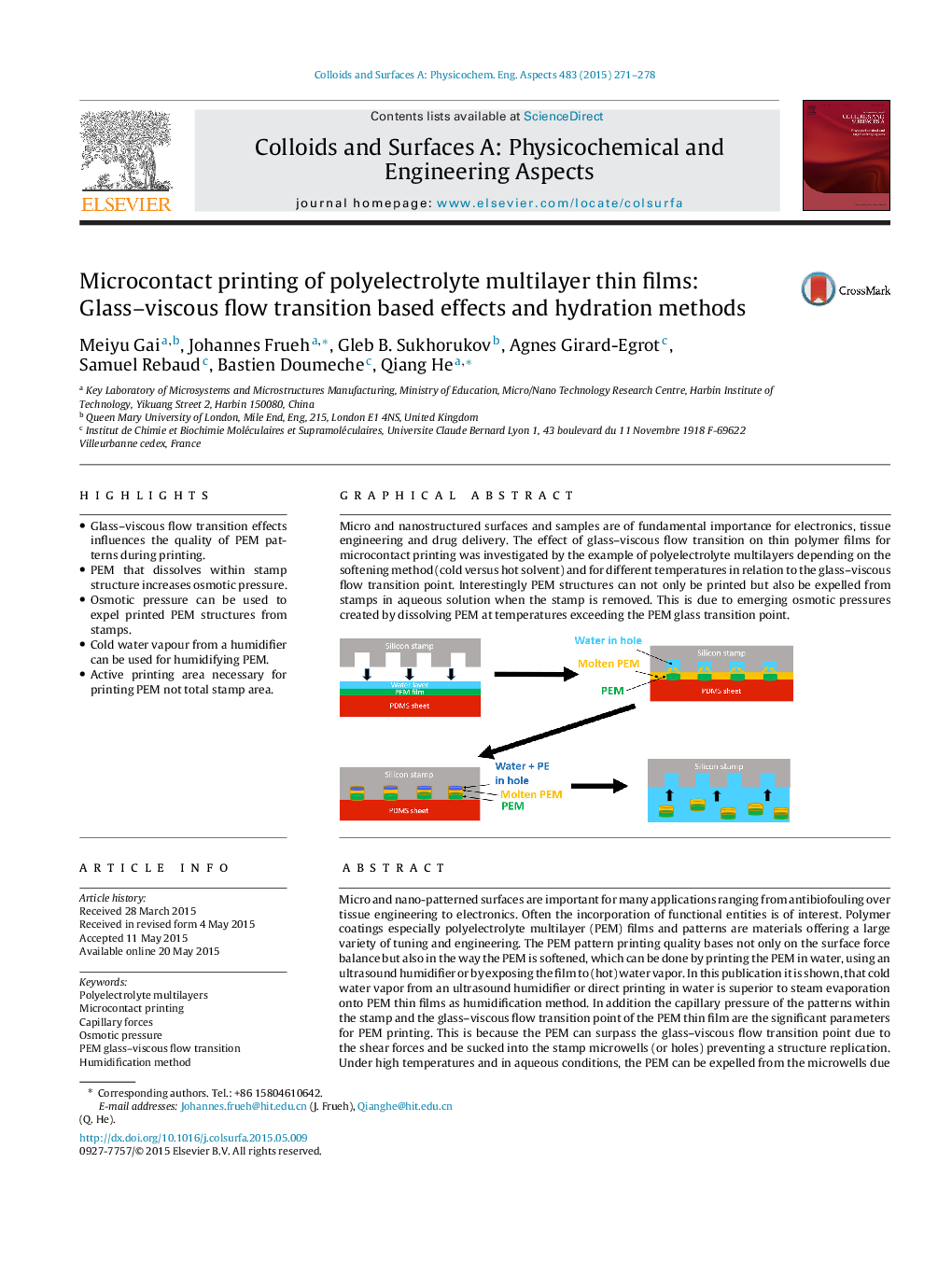| Article ID | Journal | Published Year | Pages | File Type |
|---|---|---|---|---|
| 592008 | Colloids and Surfaces A: Physicochemical and Engineering Aspects | 2015 | 8 Pages |
Abstract
Micro and nanostructured surfaces and samples are of fundamental importance for electronics, tissue engineering and drug delivery. The effect of glass-viscous flow transition on thin polymer films for microcontact printing was investigated by the example of polyelectrolyte multilayers depending on the softening method (cold versus hot solvent) and for different temperatures in relation to the glass-viscous flow transition point. Interestingly PEM structures can not only be printed but also be expelled from stamps in aqueous solution when the stamp is removed. This is due to emerging osmotic pressures created by dissolving PEM at temperatures exceeding the PEM glass transition point.
Related Topics
Physical Sciences and Engineering
Chemical Engineering
Colloid and Surface Chemistry
Authors
Meiyu Gai, Johannes Frueh, Gleb B. Sukhorukov, Agnes Girard-Egrot, Samuel Rebaud, Bastien Doumeche, Qiang He,
